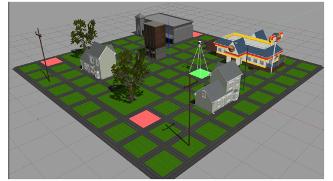In any competition, a key to a human team’s success is to be unpredictable. If a football team were to follow the same strategy to score a touchdown in every game, their competitors would exploit this information for their own advantage in the future. Can autonomous systems, like humans, act unpredictably to compete with their adversaries? Is there a limit on the unpredictability of their goal-directed behavior? Combining ideas from stochastic control and information theory, we establish the theoretical limits and computational requirements for unpredictable planning in adversarial environments. We also utilize these insights to develop efficient algorithms that enable autonomous systems to securely carry out tasks, e.g., surveillance, in the presence of adversaries.
https://ieeexplore.ieee.org/stamp/stamp.jsp?arnumber=8735817
